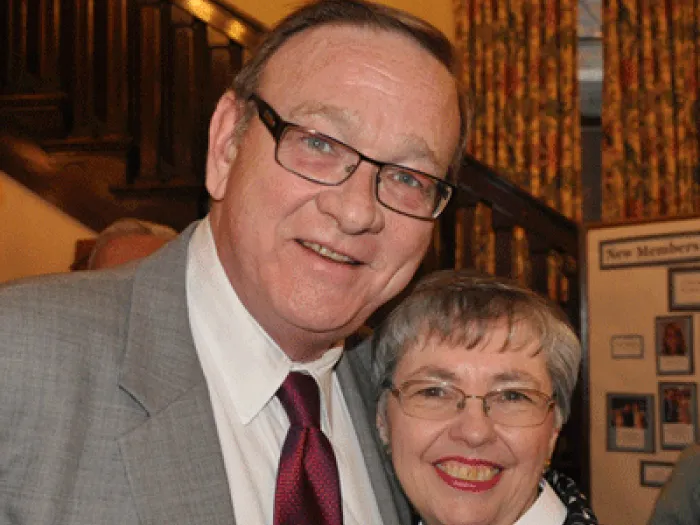Theology, Formation & Evangelism to realign around Unification Commission priorities of mid-council support and leadership development
Racial Equity & Women’s Intercultural Ministries will join with TFE


As was first reported by Presbyterian News Service on Nov. 5, several ministries in the new interim unified agency of the Presbyterian Church (U.S.A.) will be reconfigured, including the Theology, Formation and Evangelism ministry area, which serves presbyteries and synods as they support congregations and develop spiritual leadership across the church.
Over the last 12 years of ministry and innovation of 1001 New Worshiping Communities and eight years of the work of Vital Congregations, TFE leaders note they’ve learned that these ministries need to work more closely together, adding that one of the roles of TFE is to help equip and connect mid council ecosystems that nurture the development of new worshiping communities and support systems for thriving congregations and communities.
Supporting mid councils
TFE’s director, the Rev. Dr. Ray Jones III, and its associate director, the Rev. Carlton Johnson, said that TFE has realigned its ministries to respond to the Unification Commission’s priorities of supporting mid councils and developing leaders to meet the dynamic and changing needs of the church.
To that end, 1001 NWCs and Vital Congregations are being brought together to focus on both new worshiping communities and existing churches. These ministries are being joined together with the work of the intercultural consultants in Racial Equity and Women’s Intercultural Ministries.
This newly aligned ministry is now being accomplished in RE&WIM under the leadership of Johnson. Two TFE positions were eliminated in this unification alignment.

“There is an essential synergy in an ecosystem that promotes vitality of existing churches and encourages and catalyzes innovation by the power of the Holy Spirit to launch new congregations and communities,” Johnson said. “The existing church needs the energy, diversity and imagination that’s generating in new worshiping communities. Likewise, new worshiping communities need the wisdom, spiritual strength and asset support of the institutional system supporting existing churches.”
The intercultural diversity of the existing church and new worshiping communities is proliferating. That calls for a deeper teamwork and connection between the intercultural consultants in RE&WIM and the teams fostering existing church vitality and new worshiping communities, he said. “Further, in new worshiping communities we see intercultural, stage of faith, and age diversity coming to life,” according to Johnson. More than 40% of NWCs are comprised primarily of people of color. Up to 60% of participants in new worshiping communities are new disciples of Jesus Christ, and more than 75% of participants are under 55 years old. Jones said TFE hopes this diversity “can also flourish in existing congregations and ministries.”
Jones and Johnson say they believe that bringing these teams into full collaboration will be a blessing for the present and future church and provide better and wiser equipping and connecting of mid councils, congregations and their leaders.
Leadership development
The newly aligned Theology, Formation and Evangelism ministry area includes these ministry offices: Financial Aid for Service, Presbyterian Youth and Triennium, and Leadership Formation.
TFE will continue to support its ministry partners, which include the Committee on Theological Education, Presbyterian Church Camp and Conference Association, Association of Partners in Christian Education, Presbyterian Youth Workers Association, Presbyterian Older Adult Ministry Network, UKirk, Presbyterian Association of Musicians, Association of Presbyterian Colleges and Universities, and Presbyterian Federal Chaplaincies.
Four TFE positions were eliminated in this alignment.
Jones said TFE wants to not only accompany leaders on their faith journey but also partner with leaders across the church to engage in the formation of people/disciples/followers of Jesus for the work of the gospel, which always includes anticipatory participation in the reign of God through justice, repair, hope, and care for Creation.

Combining the offices of Christian Formation and Theology and Worship into a new office of Leadership Formation will focus on resources and support of ministry partners, and will continue to develop cohorts for leaders, Jones said. “This new office will continue to support the development of worship materials and Christian formation resources,” Jones said. “TFE desires to partner with the church in ways that will catalyze the conversations we need to have in order to be the church in this time of enormous change and transition.”
The ministries of theology, ecumenical, and interreligious work are essential but do not directly align with the work of the Leadership Formation office and will be critical for the lifeblood of the new organization. The most strategic ministry connections in the unified organization have yet to be identified, Jones said, noting that as the Presbyterian Mission Agency and Office of the General Assembly become a unified organization, an important need will be a fullness of theological expressions. “In the church’s ministry, we are connected to the theological excellence of our seminaries, colleges and universities,” he said. “As TFE moves into the future of God’s work in our communities and world, it will convene, connect and curate the best theological resources for the church.”
As the new organization is being formulated, theological work will continue through other ministry offices and an interim Theology Table, bringing together diverse Reformed theological voices.
You may freely reuse and distribute this article in its entirety for non-commercial purposes in any medium. Please include author attribution, photography credits, and a link to the original article. This work is licensed under a Creative Commons Attribution-NonCommercial-NoDeratives 4.0 International License.



